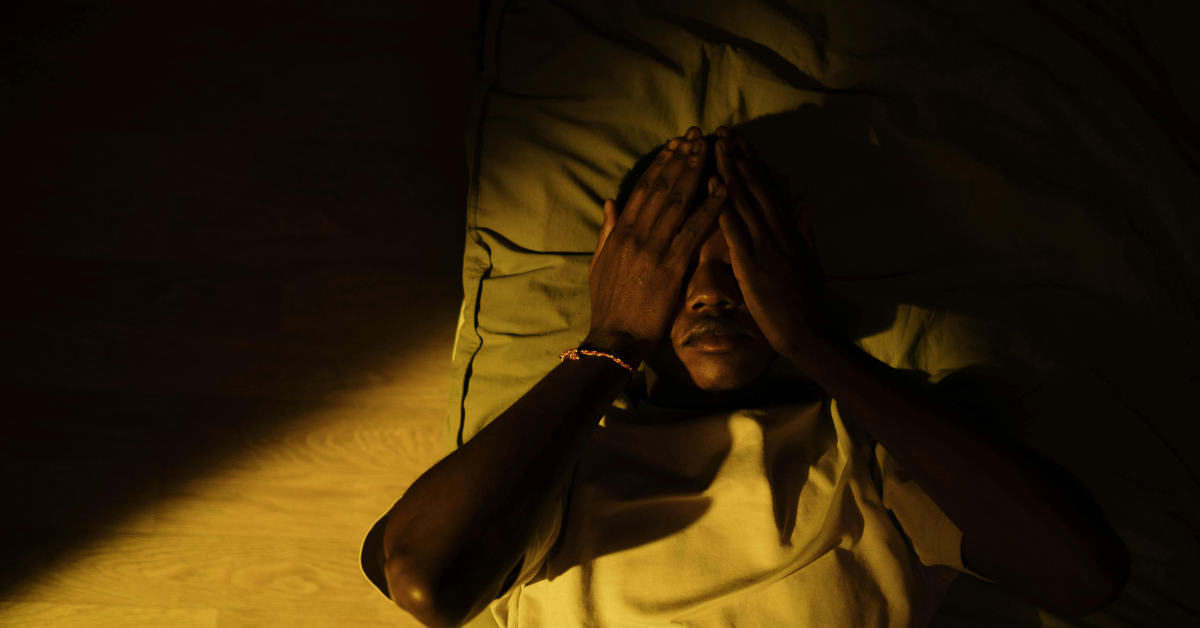Depression is a complex mood disorder that affects how you think, feel, and go about your daily life. It impacts millions of people and is more than just feeling sad for a short period. Depression brings about lasting changes in emotions and behaviors that can be overwhelming. There are multiple signs of depression.
Why Recognizing Depression Symptoms Matters
Understanding the signs of depression is an important first step towards healing. These symptoms can vary from person to person and may impact:
- Sleep patterns and energy levels
- Appetite and weight
- Ability to concentrate and make decisions
- Relationships and social connections
- Work or academic performance
If left untreated, depression can greatly reduce your quality of life, making even simple tasks seem impossible. But here’s the good news: depression is treatable. By recognizing its signs, you can find effective support and start your journey to recovery.
Understanding Signs of Depression
Depression shows up in different ways, affecting how we feel, how our bodies work, how we think, and how we behave every day:
Emotional Signs
- Feeling sad or empty all the time
- Losing interest in activities you used to enjoy
- Feeling worthless or guilty for no reason
- Experiencing anxiety or irritability without explanation
Physical Symptoms
- Changes in your sleep patterns
- Significant weight gain or loss
- Constant tiredness or lack of energy
- Aches and pains that have no clear cause
Cognitive Changes
- Finding it hard to focus or concentrate
- Having trouble making decisions
- Experiencing memory problems
- Having recurring thoughts about death
Behavioral Indicators
- Isolating yourself from others or withdrawing socially
- Being less productive at work or school
- Changes in your appetite (eating more or less)
- Neglecting personal responsibilities
Several factors can increase the likelihood of developing depression:
- Family History: If someone in your family has had depression, you may be more vulnerable to it.
- Brain Chemistry: Imbalances in certain chemicals in the brain can affect how we feel and regulate our moods.
- Hormonal Changes: Fluctuations during important life transitions (such as puberty, pregnancy, or menopause) can impact mental health.
- Environmental Stressors: Experiencing trauma, loss, or significant changes in life circumstances can trigger depression.
While grief and depression may seem similar at times, there are important differences between the two. Grief usually comes and goes in waves, allowing moments of positive memories to surface, and gradually gets better over time. On the other hand, depression tends to stay constant, affects how we view ourselves (self-worth), and often requires professional help for improvement.
By understanding these signs of depression, we can recognize them early on and seek appropriate intervention through professional care at specialized facilities like Milton Recovery Centers.
Signs of Depression in Different Groups
Depression manifests differently across gender lines, with distinct patterns emerging in women and men. Understanding these variations helps identify symptoms early and provide appropriate support.
Signs of Depression in Women
- Heightened emotional sensitivity
- Frequent crying episodes
- Persistent feelings of worthlessness
- Changes in appetite leading to weight fluctuations
- Sleep disturbances – either excessive sleep or insomnia
- Hormonal influences affecting mood during menstrual cycles, pregnancy, and postpartum
Signs of Depression in Men
- Increased irritability and anger outbursts
- Physical aggression or violent behavior
- Engagement in high-risk activities
- Substance abuse as a coping mechanism
- Withdrawal from relationships
- Difficulty maintaining work responsibilities
Women often experience depression through intense emotional expressions and internal struggles, influenced by hormonal changes throughout their lives. Their symptoms typically align with traditional depression criteria, making diagnosis more straightforward.
Men’s depression frequently manifests through external behaviors and actions. They may mask emotional pain through aggressive conduct or seek escape through dangerous activities. This presentation can make depression harder to recognize in men, as these behaviors might be mistaken for personality traits or lifestyle choices.
The impact of societal expectations plays a significant role – women may feel more comfortable expressing emotional distress, while men might suppress feelings due to cultural pressures to appear strong and in control.
When to Seek Professional Help for Depression
Knowing when to get professional help for depression can make a huge difference in your life. Mental health experts suggest getting immediate help if depressive symptoms last for more than two weeks, happen most days, and continue throughout the day.
Here are some signs that indicate you may need professional help:
- Struggling with daily activities – having difficulty with basic tasks like taking care of yourself, cooking meals, or doing household chores
- Changes in sleep patterns – experiencing significant shifts in your sleep habits, such as sleeping excessively or having trouble sleeping
- Decline in work or school performance – missing deadlines, being less productive, or finding it hard to concentrate
- Avoiding social interactions – distancing yourself from friends, family, or activities you used to enjoy
- Unexplained physical symptoms – having aches, pains, or digestive issues that don’t improve with treatment
Getting help early is crucial in stopping depressive symptoms from getting worse. Studies show that people who receive timely treatment tend to have better results and a lower chance of experiencing future episodes. It’s important to seek professional help when these signs disrupt your daily life or when you have thoughts of harming yourself.
Treatment Options for Depression at Milton Recovery Centers
Milton Recovery Centers offers evidence-based treatment modalities tailored to each individual’s unique needs. Our comprehensive approach combines multiple therapeutic strategies:
Lifestyle Modifications
- Structured sleep hygiene programs
- Personalized physical activity plans
- Stress management techniques
Medication Management
- Careful evaluation for antidepressant needs
- Regular monitoring of medication effectiveness
- Dosage adjustments based on response
- Integration with other treatment approaches
Psychotherapeutic Interventions
- Cognitive Behavioral Therapy (CBT)
- Dialectical Behavior Therapy (DBT)
- Mindfulness-based techniques
Group and Individual Therapy
- One-on-one counseling sessions
- Peer support groups
- Family therapy sessions
- Skills-building workshops
Our treatment programs emphasize the connection between mental and physical well-being. Patients receive care in a nurturing environment designed to promote healing and recovery. The clinical team works collaboratively to adjust treatment plans based on progress and response, ensuring optimal outcomes for each individual’s journey toward wellness.
Comprehensive Depression Care at Milton Recovery Centers
At Milton Recovery Centers, we have a dedicated team ready to guide you through evidence-based treatments that are tailored to your unique needs.
Hope and healing are possible. Our comprehensive care approach has helped countless individuals rediscover joy and purpose in their lives. Each day brings new opportunities for positive change, and you don’t have to face this challenge alone. Reach out to Milton Recovery Centers today if you’re experiencing signs of depression.




